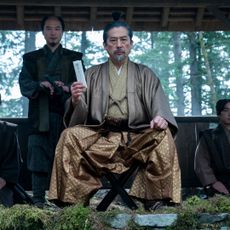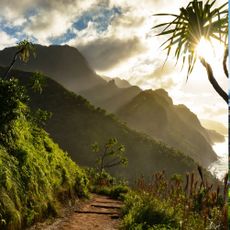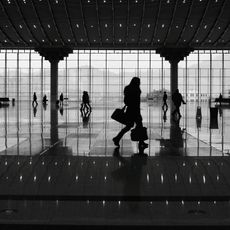Emerging out of the dust clouds that gather closer and closer is a small minibus. It stops beside us, and an ancient-looking man unfolds himself from the vehicle, looking dazed. It is swelteringly hot and he's drenched in sweat. His daughter and her tiny baby are with him, and they, too, look lost and weary. In their confused state, they seek out the shade of a building while I run to get them water. But I can't stay with them...
An old woman who appears to be blind needs help out of the van along with her single, small bag. She is followed by a young couple with a baby who has terrible sores on his legs—the mother is rightly worried and anxious. The baby needs a doctor and a call is made, but there are plenty more in the van who need attention.
I am in Adjumani Refugee Camp in Northern Uganda with UNHCR, The UN Refugee Agency. Adjumani is one of four refugee camps in this area. Until I read my briefing notes for this trip, I hadn't realized that the ongoing conflict just across the border in South Sudan was still driving so many families to flee their homes and seek refuge and safety in neighboring countries. And I'm not talking about just a few families. Staggeringly, over 551,636 refugees have fled South Sudan in total since the start of the conflict in December 2013. Over 155,417 of those refugees have arrived in Uganda alone.
And here, enveloped in an even larger, swirling dust cloud, rumbles in a huge UNHCR truck that has arrived from the border carrying vulnerable, worn, and traumatized human cargo. This one carries 55 more frightened souls escaping the violence in their country. The door slides open and, through the gap, people start jumping to the ground. The majority are women and children – as are 85% of refugees from this conflict – with at least 35,000 children traveling alone, either having been separated from their family or because their family has been killed. Some will never be able to find out the truth of what happened to their loved ones.
It is an overwhelming sight to see this outpouring of human beings, many of whom are being made refugees for the third or even fourth time in their lives. I wonder aloud what I should do and the UNHCR staff says to, "Welcome them!" I move forward and start lifting children out of the truck, supporting mothers as they climb to the ground. Everyone is covered in dust, bone thin, and dazed. Hardly anyone has any bags or belongings. They have fled wearing only their clothes and they have avoided the gunfire on the roads by hiding in the bushes, surviving on berries and leaves for days as they journeyed to the border.
"Everyone is covered in dust, bone thin, and dazed. Hardly anyone has any bags or belongings."
I tell them: "You are welcome here. You are safe now. We are here to help you." They are simple words but the reality of their meaning is profound and I feel a responsibility and privilege in saying them.
I think we have helped the final few out into the blazing sunshine when I hear cries coming from the deepest corner of the truck. Three tiny babies are still cloaked in the darkness with their mothers. I hold each precious baby as each mother gathers the few belongings they have and clambers down to me with the support of others.
Stay In The Know
Marie Claire email subscribers get intel on fashion and beauty trends, hot-off-the-press celebrity news, and more. Sign up here.
We show our tired, subdued new arrivals to a shaded area where they can rest as the registration process gets under way. Camp staff brings large water jugs for everyone. And they begin to cook a meal that soon the entire camp will share. Word travels quickly around the camp that the trucks have brought new arrivals, and anxious relatives gather to see if family members and friends are amongst the group.
I'm worried about one teenage boy who speaks English. He doesn't smile and won't sit down in the shade, preferring instead to pace, clutching the straps of his small backpack. But suddenly, his face lights up as a woman emerges from one of the camp tents. She is his auntie, and I am witnessing the joy and sorrow of a family reunion unfolding before me in a camp so far from the place they call home.
"She is his auntie, and I am witnessing the joy and sorrow of a family reunion unfolding before me in a camp so far from the place they call home."
John, who I meet later on, no longer wishes to go home to South Sudan. Since the age of five, he has been forced to flee his country three different times. In 1988, his family fled to Dima camp, run by UNHCR, in Ethiopia, before returning to Sudan in 1991. They became war-made refugees again in 1994 and for 12 years they lived in Kakuma Camp in Kenya, where John attended both primary and secondary school. When the peace treaty was signed in 2006, he and his parents returned to Sudan, but in 2013 conflict savagely interrupted their lives once more. Both of John's parents were killed. This time John escaped to Adjumani in Uganda.
John is amazingly philosophical about his experiences. He is not bitter. He is not angry. But he strongly believes that education is the answer to the problems of his native country. He is currently head teacher of St. Luke's Primary School, near Adjumani and, while he himself doesn't want to go "home," he feels passionately about educating the next generation of South Sudanese, so that when peace is achieved, and they return to their country, they can avoid repeating the violent patterns of the past.
John, like many others across the country, benefits from a generous (in spirit, attitude and support) Ugandan government policy towards refugees. Every refugee is registered in Uganda and is free to move around the country, as well as work, and they are even given a small plot of land to live on and farm. Ugandans work and play alongside the South Sudanese in peace and cooperation. The Chairman of the South Sudanese Community Group, Maryok Wilson, tells us: "I carried my wife and my children to get here and now we live amongst the Ugandan people like brothers."
At a time when there is so much misunderstanding, ill-will, and prejudice towards refugees in so many parts of the world, it's reassuring to hear comments such as this and to see a government, and host community, being so welcoming. But Uganda is not a rich country and it is unfair for us to imagine or expect that it can cope with such large influxes of refugees without the support of the international community. Not just our governments but we, as individuals, too. The current funding gap for the South Sudan refugee crisis is 90%. The needs of these people who have lost everything are huge and urgent. Acute, severe childhood malnutrition is rising as the conflict stretches on, and people need the absolute basics in order to simply survive: tents, soap, pots and pans, blankets, food, water.
I marvel at John who has miraculously survived a lifetime of war with his humanity intact; I bow to the mothers who have shown such determination and strength in carrying their children on their backs and in their arms for days to get them to safety; and I wonder what the future holds for those newborn babies who have yet to understand anything of the world they have been born into.
"I bow to the mothers who have shown such determination and strength in carrying their children on their backs and in their arms for days to get them to safety; and I wonder what the future holds for those newborn babies who have yet to understand anything of the world they have been born into."
The people I have met are ordinary people who have shown extraordinary resilience. And it is the same with refugees all over the world. Despite losing so much, and having their lives reset to zero, they still want to achieve —for their families, community, and their country. It seems to me that, the very least, each one of us can give refugees, both across the world and in our own schools, communities, countries, honoring these words:"You are welcome here. You are safe now. We are here to help you."
For more on Kristin's visit with UNHCR, please go to: unrefugees.org/Kristin
-
 21 Spring Essentials in Madewell, Banana Republic, and Shopbop's Flash Sales
21 Spring Essentials in Madewell, Banana Republic, and Shopbop's Flash SalesDon’t let these can’t-miss sales pass you by.
By Brooke Knappenberger Published
-
 'Shōgun' Is a Masterpiece—Will There Be More Episodes?
'Shōgun' Is a Masterpiece—Will There Be More Episodes?With those ratings, never say never.
By Quinci LeGardye Published
-
 32 Child Stars Who Have Aged Like Fine Wine
32 Child Stars Who Have Aged Like Fine WineThey made the notoriously bumpy transition to adulthood look easy.
By Katherine J. Igoe Published
-
 5 Wellness Destinations That Aren't Actually Wellness Retreats
5 Wellness Destinations That Aren't Actually Wellness RetreatsWellness goes far deeper than spa days and sweaty bootcamp classes under shaded palapa huts.
By Annie Daly Published
-
 The Ultimate Guide to Getting Away
The Ultimate Guide to Getting AwayTravel isn't a selfish indulgence; it's an act of self-care. It doesn't matter what you're in need of—a desert island or a road trip, a detox or a dinner party—a few days away from home, the office, or Twitter is just what the doctor ordered.
By Jennifer G. Sullivan Published
-
The Ultimate Helsinki Sauna Crawl
In Finland, even the Burger Kings boast a sauna.
By Laura Studarus Published
-
 If Your Period Is Off and You're Traveling, Sorry to Say They Might Be Connected
If Your Period Is Off and You're Traveling, Sorry to Say They Might Be ConnectedWhy can nothing be easy.
By Lyndsey Matthews Published
-
This Airline Wants to Start Weighing Passengers Before They Board the Plane
Can't imagine this will go over well...
By Rebecca Endicott Published
-
 Paradox at Sea: My Week on a Weight-Loss Cruise
Paradox at Sea: My Week on a Weight-Loss CruiseMe, a buffet, and 600 Weight Watchers.
By Leah Prinzivalli Published